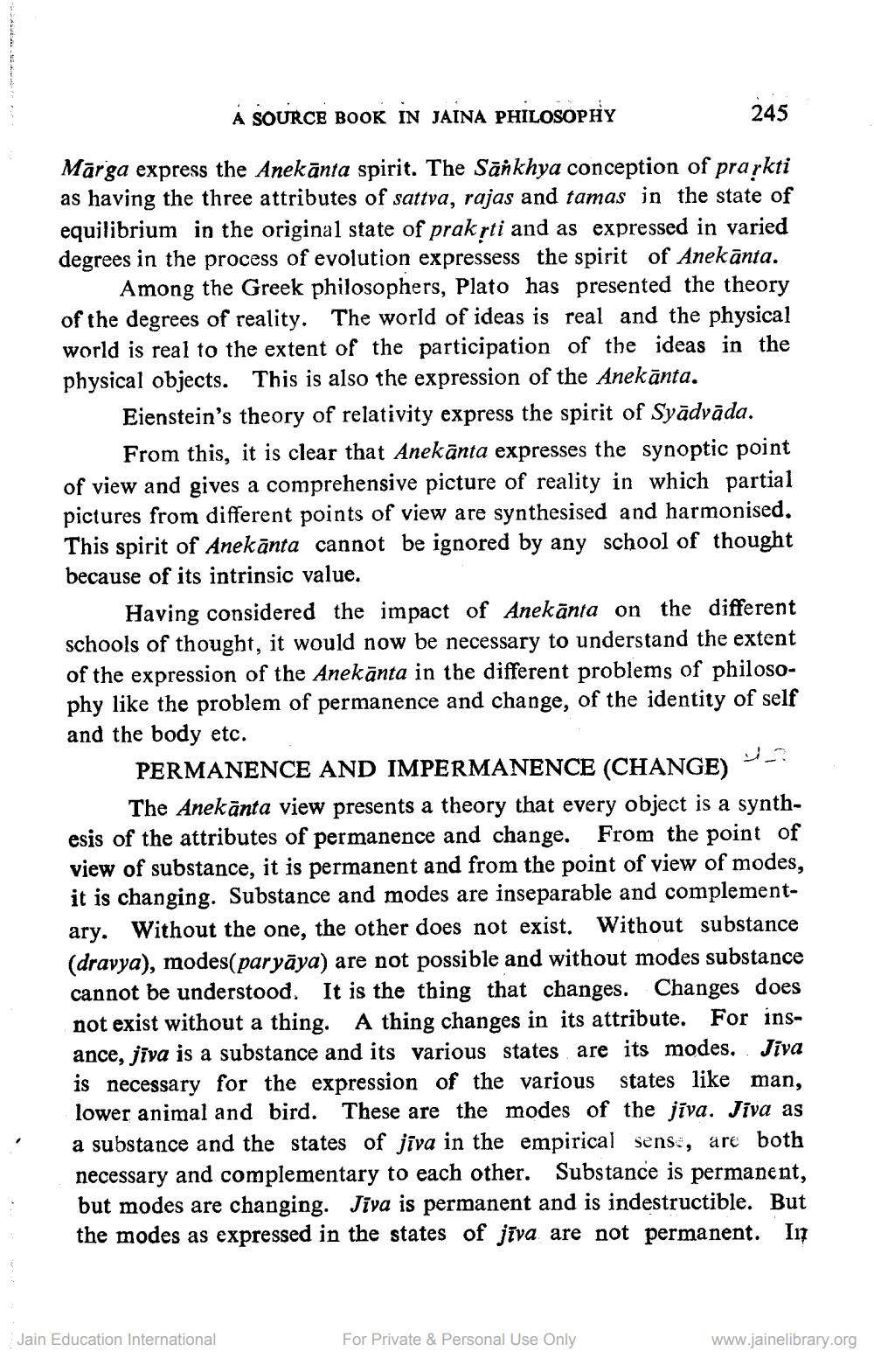________________
A SOURCE BOOK IN JAINA PHILOSOPHY
Mārga express the Anekānta spirit. The Sankhya conception of praṛkti as having the three attributes of sattva, rajas and tamas in the state of equilibrium in the original state of prakṛti and as expressed in varied degrees in the process of evolution expressess the spirit of Anekanta.
Among the Greek philosophers, Plato has presented the theory of the degrees of reality. The world of ideas is real and the physical world is real to the extent of the participation of the ideas in the physical objects. This is also the expression of the Anekanta.
Eienstein's theory of relativity express the spirit of Syādvāda.
From this, it is clear that Anekānta expresses the synoptic point of view and gives a comprehensive picture of reality in which partial pictures from different points of view are synthesised and harmonised. This spirit of Anekanta cannot be ignored by any school of thought because of its intrinsic value.
245
Having considered the impact of Anekanta on the different schools of thought, it would now be necessary to understand the extent of the expression of the Anekanta in the different problems of philosophy like the problem of permanence and change, of the identity of self and the body etc.
PERMANENCE AND IMPERMANENCE (CHANGE)
The Anekanta view presents a theory that every object is a synthesis of the attributes of permanence and change. From the point of view of substance, it is permanent and from the point of view of modes, it is changing. Substance and modes are inseparable and complementary. Without the one, the other does not exist. Without substance (dravya), modes(paryāya) are not possible and without modes substance cannot be understood. It is the thing that changes. Changes does not exist without a thing. A thing changes in its attribute. For insance, jīva is a substance and its various states are its modes. Jiva is necessary for the expression of the various states like man, lower animal and bird. These are the modes of the jīva. Jīva as a substance and the states of jiva in the empirical sense, are both necessary and complementary to each other. Substance is permanent, but modes are changing. Jiva is permanent and is indestructible. But the modes as expressed in the states of jīva are not permanent. In
Jain Education International
For Private & Personal Use Only
92
www.jainelibrary.org




